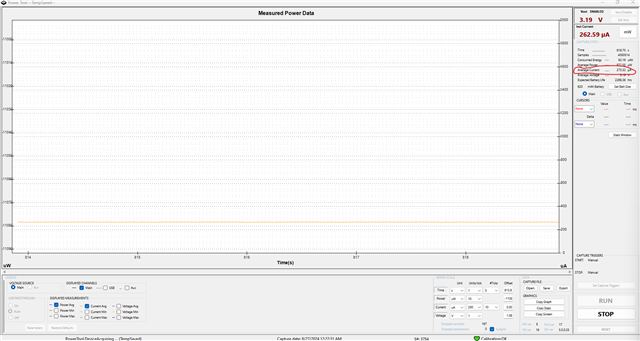Hi Nordic support team.
I incharg project replace NRF24l01 by new design with nrf52833.
Using nRF5_SDK_17.0.2 and segger studio compiler.
I using esb_tx example, the application running well.
But it seem take so much power consumtion. i try to modify code in main function like this nothing to do only sleep mode like this.
int main(void)
{
ret_code_t err_code;
gpio_init();
clocks_start();
err_code = esb_init();
APP_ERROR_CHECK(err_code);
while (true)
{
__WFE();
__SEV();
__WFE();
}
}
But when measure power consumtion i see that always 270uA. It happened the same eventhrough i commented //gpio_init() function

Can you help me check about that. i expect down to 25uA.
thank and best regards,
